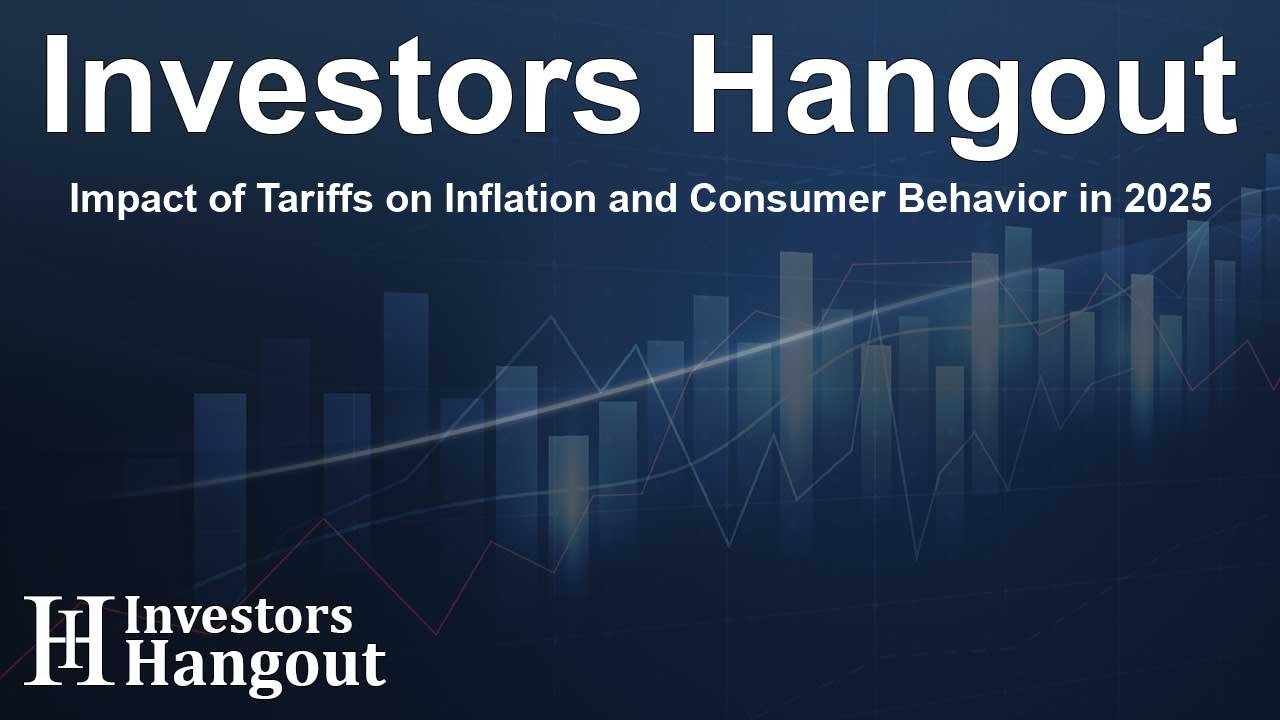Impact of Tariffs on Inflation and Consumer Behavior in 2025

Economic Challenges Amid Tariffs
The Federal Reserve's Beige Book showcases current economic dynamics, revealing that tariffs introduced by the Trump administration lead to increased costs for businesses. This cost escalation is increasingly passed on to consumers, which raises concerns about inflation.
Price Increases from Tariffs
The report reflects that many districts reported widespread price increases due to tariffs. Some companies initially absorbed these costs to maintain their market presence, but others in sectors like manufacturing and retail are now shifting these expenses directly to consumers.
As a result, there is a noted shift in consumer behavior; lower- and middle-income households are actively searching for discounts and promotions amidst rising prices and growing economic anxiety. It is increasingly becoming clear that these demographics are feeling the brunt of rising costs.
Strain on Consumer Pocketbooks
Eric Teal, Chief Investment Officer for Comerica Wealth Management, has pointed out that businesses are running out of options to mitigate the impact of tariffs. He stated, “It is likely that the inflation-sensitive consumer will bear a much larger share of the tariff burdens.”
Potential Effects of Government Shutdown
The findings presented in the Beige Book were compiled prior to the recent government shutdown, a scenario that could exacerbate economic slowdowns. Jeffrey Roach, Chief Economist for LPL Financial, explains that the slowdown had already set in and the government shutdown will further amplify existing weaknesses.
Declining demand in certain sectors is impacting material prices, including commodities like steel and lumber. It is essential to monitor these developments closely to understand their extended effects on the economy.
Recession Risks Remain Manageable
Despite facing multiple challenges, Roach maintains an optimistic outlook about avoiding an economic downturn. He elaborates that “Firms are experiencing a slowdown in business activity,” yet overall, recession risks remain manageable.
This perspective suggests a relatively stable labor market, although it appears that employers are favoring temporary positions over hiring full-time staff. Roach anticipates ongoing actions from the Federal Reserve and notes, “We expect the Fed to cut rates in the remaining two meetings of the year.”
Market Reactions to Current Economic Trends
Recently, the S&P 500 index closed at 6,671.06, up 0.40%, with the Nasdaq 100 index gaining 0.68% to finish at 24,745.36. Conversely, the Dow Jones slightly decreased by 0.037% to 46,253.31.
Both the SPDR S&P 500 ETF Trust (NYSE: SPY) and the Invesco QQQ Trust ETF (NASDAQ: QQQ), tracking the S&P 500 and Nasdaq indices respectively, saw positive movements. Specifically, the SPY increased by 0.44% to $665.17, whereas the QQQ rose 0.71% to $602.22.
As of Thursday, futures for the S&P 500, Dow Jones, and Nasdaq 100 indices exhibited mixed trading patterns, indicating ongoing volatility attributed to these economic factors.
Frequently Asked Questions
What are the main findings of the Federal Reserve's Beige Book?
The Beige Book indicates that tariffs are leading to higher business costs that are passed on to consumers, affecting overall economic activity.
How do tariffs impact consumer behavior?
Tariffs have caused price increases, making consumers more price-sensitive as they seek promotions and discounts to cope with rising costs.
What did Eric Teal say regarding the burden on consumers?
Eric Teal mentioned that inflation-sensitive consumers will likely bear a larger share of the tariff costs as businesses exhaust their mitigation strategies.
How has the recent government shutdown affected the economy?
The government shutdown introduced additional challenges that could worsen the already slowing economic conditions identified prior to the shutdown.
What is the outlook for recession risks?
Despite economic headwinds, analysts believe that recession risks remain contained and manageable, indicating a stable yet cautious economic environment.
About The Author
Contact Dominic Sanders privately here. Or send an email with ATTN: Dominic Sanders as the subject to contact@investorshangout.com.
About Investors Hangout
Investors Hangout is a leading online stock forum for financial discussion and learning, offering a wide range of free tools and resources. It draws in traders of all levels, who exchange market knowledge, investigate trading tactics, and keep an eye on industry developments in real time. Featuring financial articles, stock message boards, quotes, charts, company profiles, and live news updates. Through cooperative learning and a wealth of informational resources, it helps users from novices creating their first portfolios to experts honing their techniques. Join Investors Hangout today: https://investorshangout.com/
The content of this article is based on factual, publicly available information and does not represent legal, financial, or investment advice. Investors Hangout does not offer financial advice, and the author is not a licensed financial advisor. Consult a qualified advisor before making any financial or investment decisions based on this article. This article should not be considered advice to purchase, sell, or hold any securities or other investments. If any of the material provided here is inaccurate, please contact us for corrections.
